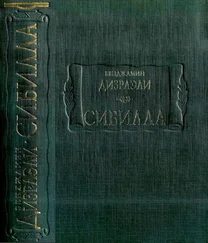This unfortunate passion of Charles Egremont, and its mortifying circumstances and consequences, was just that earliest shock in one's life which occurs to all of us; which first makes us think. We have all experienced that disheartening catastrophe, when the illusions first vanish; and our balked imagination, or our mortified vanity, first intimates to us that we are neither infallible nor irresistible. Happily 'tis the season of youth for which the first lessons of experience are destined; and bitter and intolerable as is the first blight of our fresh feelings, the sanguine impulse of early life bears us along. Our first scrape generally leads to our first travel. Disappointment requires change of air; desperation change of scene. Egremont quitted his country, never to return to it again; and returned to it after a year and a–half's absence, a much wiser man. Having left England in a serious mood, and having already tasted with tolerable freedom of the pleasures and frivolities of life, he was not in an inapt humour to observe, to enquire, and to reflect. The new objects that surrounded him excited his intelligence; he met, which indeed is the principal advantage of travel, remarkable men, whose conversation opened his mind. His mind was worth opening. Energies began to stir of which he had not been conscious; awakened curiosity led him to investigate and to read; he discovered that, when he imagined his education was completed, it had in fact not commenced; and that, although he had been at a public school and a university, he in fact knew nothing. To be conscious that you are ignorant is a great step to knowledge. Before an emancipated intellect and an expanding intelligence, the great system of exclusive manners and exclusive feelings in which he had been born and nurtured, began to tremble; the native generosity of his heart recoiled at a recurrence to that arrogant and frigid life, alike devoid of sympathy and real grandeur.
In the early spring of 1837, Egremont re–entered the world, where he had once sparkled, and which he had once conceived to comprise within its circle all that could interest or occupy man. His mother, delighted at finding him again under her roof, had removed some long–standing coolness between him and his elder brother; his former acquaintance greeted him with cordiality, and introduced him to the new heroes who had sprung up during the season of his absence. Apparently Egremont was not disinclined to pursue, though without eagerness, the same career that had originally engaged him. He frequented assemblies, and lingered in clubs; rode in the park, and lounged at the opera. But there was this difference in his existence, before and since his travels: he was now conscious he wanted an object; and was ever musing over action, though as yet ignorant how to act. Perhaps it was this want of being roused, that led him, it may be for distraction, again to the turf. It was a pursuit that seemed to him more real than the life of saloons, full of affectation, perverted ideas, and factitious passions. Whatever might be the impulse Egremont however was certainly not slightly interested in the Derby; and though by no means uninstructed in the mysteries of the turf, had felt such confidence in his information that, with his usual ardour, he had backed to a considerable amount the horse that ought to have won, but which nevertheless only ran a second.
Notwithstanding the confidence of Lady St Julians, and her unrivalled information, the health of the king did not improve: but still it was the hay fever, only the hay fever. An admission had been allowed to creep into the Court Circular, that "his majesty has been slightly indisposed within the last few days;" but then it was soon followed by a very positive assurance, that his majesty's favourite and long–matured resolution to give a state banquet to the knights of the four orders, was immediately to be carried into effect. Lady St Julians had the first information of this important circumstance; it confirmed her original conviction: she determined to go on with her quadrille. Egremont, with something interesting at stake himself, was staggered by this announcement, and by Lady St Julians' unshaken faith. He consulted his mother: Lady Marney shook her head. "Poor woman!" said Lady Marney, "she is always wrong. I know," continued her ladyship, placing her finger to her lip, "that Prince Esterhazy has been pressing his long–postponed investiture as a Grand Cross, in order that he may dine at this very banquet; and it has been announced to him that it is impossible, the king's health will not admit of it. When a simple investiture is impossible, a state banquet to the four orders is very probable. No," said Lady Marney with a sigh; "it is a great blow for all of us, but it is no use shutting our eyes to the fact. The poor dear king will never show again."
And about a week after this there appeared the first bulletin. From that instant, though the gullish multitude studied the daily reports with grave interest; their hopes and speculations and arrangements changing with each phrase; for the initiated there was no suspense. All knew that it was over; and Lady St Julians, giving up her quadrille, began to look about for seats in parliament for her sons.
"What a happiness it is to have a clever mother," exclaimed Egremont, as he pondered over the returns of his election agent. Lady Marney, duly warned of the impending catastrophe, was experiencing all the advantages of prior information. It delighted her to meet Lady St Julians driving distractedly about town, calling at clubs, closeted with red tapers, making ingenious combinations that would not work, by means of which some one of her sons was to stand in coalition with some rich parvenu; to pay none of the expenses and yet to come in first. And all this time, Lady Marney, serene and smiling, had the daily pleasure of assuring Lady St Julians what a relief it was to her that Charles had fixed on his place. It had been arranged indeed these weeks past; "but then, you know," concluded Lady Marney in the sweetest voice and with a blandishing glance, "I never did believe in that hay fever."
In the meantime the impending event changed the whole aspect of the political world. The king dying before the new registration was the greatest blow to pseudo–toryism since his majesty, calling for a hackney coach, went down and dissolved parliament in 1831. It was calculated by the Tadpoles and Tapers that a dissolution by Sir Robert, after the registration of 1837, would give him a clear majority, not too great a one, but large enough: a manageable majority; some five–and–twenty or thirty men, who with a probable peerage or two dangling in the distance, half–a–dozen positive baronetcies, the Customs for their constituents, and Court balls for their wives, might be induced to save the state. 0! England, glorious and ancient realm, the fortunes of thy polity are indeed strange! The wisdom of the Saxons, Norman valour, the state–craft of the Tudors, the national sympathies of the Stuarts, the spirit of the latter Guelphs struggling against their enslaved sovereignty,—these are the high qualities, that for a thousand years have secured thy national developement. And now all thy memorial dynasties end in the huckstering rule of some thirty unknown and anonymous jobbers! The Thirty at Athens were at least tyrants. They were marked men. But the obscure majority, who under our present constitution are destined to govern England, are as secret as a Venetian conclave. Yet on their dark voices all depends. Would you promote or prevent some great measure that may affect the destinies of unborn millions, and the future character of the people,—take, for example, a system of national education,—the minister must apportion the plunder to the illiterate clan; the scum that floats on the surface of a party; or hold out the prospect of honours, which are only honourable when in their transmission they impart and receive lustre; when they are the meed of public virtue and public services, and the distinction of worth and of genius. It is impossible that the system of the thirty can long endure in an age of inquiry and agitated spirit like the present. Such a system may suit the balanced interests and the periodical and alternate command of rival oligarchical connections: but it can subsist only by the subordination of the sovereign and the degradation of the multitude; and cannot accord with an age, whose genius will soon confess that Power and the People are both divine.
Читать дальше












